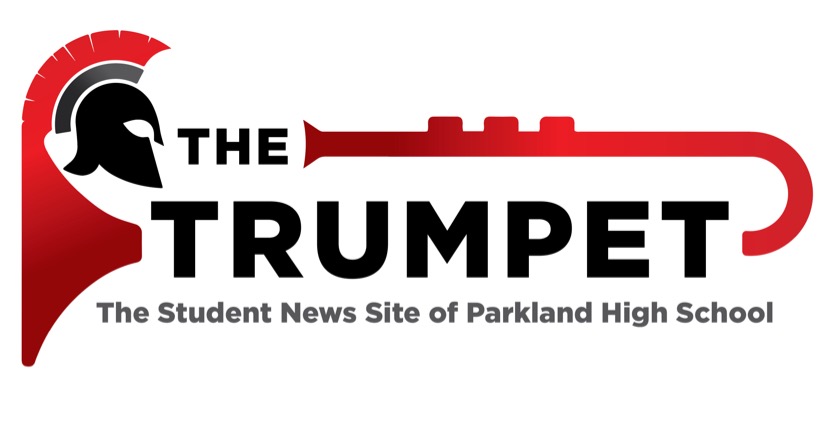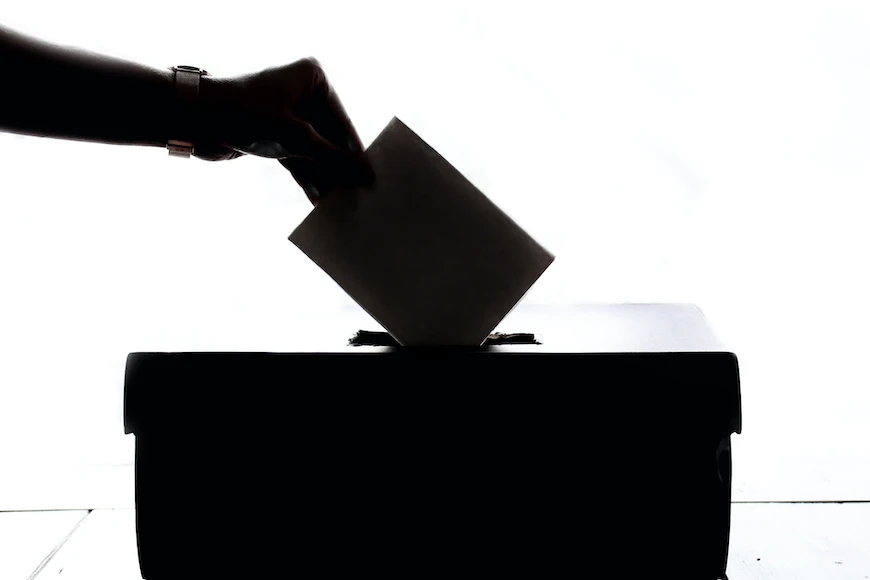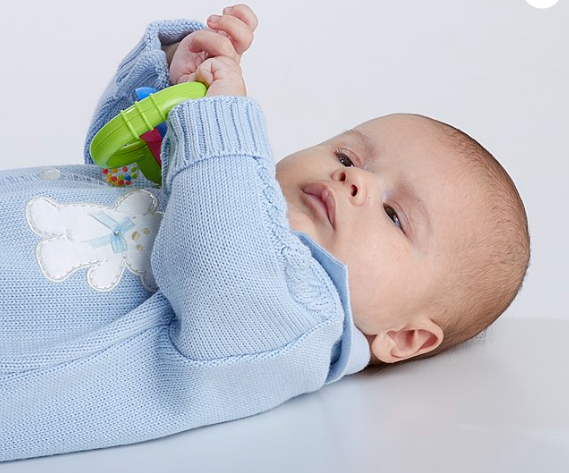The 2024 presidential election is steadily approaching. The last election from 2020 was marked by economic concerns, healthcare and COVID-19 related concerns, and heightened awareness of racial issues in America. Politics can be confusing, but it is important for young people to stay informed and active in the legislation that will shape our future. Here’s what you need to know.
Important Terms: Ok, so maybe you’re not so government-savvy, but you still want to know what’s going on. Here’s a quick reference guide to some of the terms that will be used in this article and throughout the election cycle.
Caucus – “Caucuses are private meetings run by political parties. They are held at the county, district, or precinct level. In most, participants divide themselves into groups according to the candidate they support. Undecided voters form their own group” (USA.Gov).
Centrist- A person who holds moderate political views (Oxford Dictionary).
Democrat – A political party that generally supports ideas of liberalism, or a philosophy focused on progress. Supports the government playing a larger role in social affairs (Merriam-Webster).
Primaries – “Primaries are elections that political parties use to select candidates for a general election” (FVAP.Gov).
Republican – A political party that generally supports ideas of conservatism, or a philosophy focused on tradition and stability. Advocate for a smaller federal government (Merriam-Webster).
Incumbent- (of an official or regime) currently holding office (Oxford).
Independent- A party that has no partisan standing (Pew Research).
Important Dates: (courtesy of 270towin.com)
January 15th, 2024 – First presidential Caucus for registered Republicans in Iowa.
February 3rd, 2024 – First presidential primary for registered democrats in South Carolina
April 23, 2024 – Pennsylvania Primary elections
July 15-18th – Republican National Convention in Milwaukee, WI
August 19-22nd – Democratic National Convention in Chicago, IL
TBD – General Election Debates. Expected to take place fall of 2024.
November 5, 2024 – Election day
January 20th, 2025 – Inauguration Day
Presidential Candidates: Here’s who, as of the date of this publication, have thrown their hat in the race, categorized by party.
Democrat – Joe Biden, Marianne Williamson, Cenk Uygur, Dean Phillips
Republican – Donald Trump, Nikki Haley, Vivek Ramaswamy, Asa Hutchinson, Ryan Binkley, Tim Scott, Ron Desantis, Chris Christie, Doug Burgum
Independent – Robert F. Kennedy JR, Cornel West
Key Issues- Here are some (but not all) of the main issues surrounding this election and the different candidates’ stances. You can use this to make an informed decision about who to support and/or vote for. However, The Trumpet encourages everyone to conduct their own research and form their opinions.
Abortion –
The majority of the Republican candidates support national abortion bans at differing weeks of fetal development, like DeSantis, Scott, and Hutchinson. Haley also supports a national ban, but finds it unlikely Congress would be able to pass one, and often responds to abortion questions by saying that lawmakers need to find a “national consensus” (New York Times). Similarly, former New Jersey governor Chris Christie opposes a national ban unless he sees a consensus at the state level (New York Times). Trump has given many contradicting responses on abortion but did appoint three of the Supreme Court justices who overturned Roe v. Wade (New York Times).
As for the Democrats, Williamson’s official website says that she is “one hundred percent pro-choice” (Marianne2024). Biden has called on Congress to codify abortion protections into law and claims he will veto bills calling for a national ban (ABC). In 2022, Representative Phillips, on the passage of the Women’s Health Protection Act, said, “Abortion is health care, and I will protect women’s right to choose it using every tool our Founders afforded us.”
Kennedy, an Independent, had originally supported a three-month federal abortion ban, but recently claimed he had misspoken and is in fact pro-choice (ABC).
Immigration –
The majority of the Republican candidates support Trump’s policies surrounding immigration. In the past, Trump has banned travelers from Muslim countries and has said in light of the Hamas and Israel war that, if elected once again, he would enact an even more extensive ban, which would include anyone who is “communist, Marxist or fascist,” who sympathized with “radical Islamic terrorists and extremists,” or who wanted “to abolish the state of Israel” (New York Times). Ramaswamy has proposed another stance, saying that the US should secure our borders using military force if necessary. The Republican candidates with more moderate views on the issue are Hutchinson and Burgum.
As for the Democrats, Williamson has said that she will: “support comprehensive immigration reform and provide a timely, ethical, transparent, and straightforward path to citizenship for all immigrants who have not violated any of the serious laws of this country, living in the United States” (Marianne2024). Representative Phillips has helped pass legislation in Congress like The American Dream and Promise Act, which helps children of undocumented immigrants gain citizenship. His website says that “Dean supports comprehensive immigration reform, including enhanced border security, a pathway to citizenship for those here now, and a streamlined process for those seeking to enter the country legally” (Phillips for Congress). President Biden, “has moved to increase refugee admissions and supports a pathway to citizenship for farm workers without authorization to be in the country, those on Temporary Protected Status and Deferred Action for Childhood Arrivals recipients and their parents” (ABC). He also introduced the U.S. Citizenship Act of 2021, which would allow more immigrants into the US and aid millions of unauthorized immigrants as a pathway to legal status. This was proposed on his first day in office, and the bill died in Congress shortly after (whitehouse.gov).
Climate Change –
There are differing views in the Republican party on climate change. During the Trump Administration, the U.S. Government rolled back more than 100 environmental regulations and chose to withdraw the U.S. from the Paris Agreement, which made countries commit to limiting the effects of climate change. Ron Desantis, the Governor of Florida, has dismissed the notion that concern for climate change is solely a Democratic policy, saying “I’ve always rejected the politicization of the weather.” However, his economic plan on a federal level supports the use of fossil fuels and seeks to reverse Biden’s efforts to promote electric vehicles (New York Times). Haley feels climate change is a concern, but rejects most government efforts to manage it, saying “liberal ideas would cost trillions and destroy our economy” (New York Times).
For the Democrats, Representative Phillips has supported acts in Congress throughout his political career that fought against climate change. These include The Energy Innovation and Carbon Dividend Act, The Growing Climate Solutions Act, and The Conservation and Innovative Climate Partnership Act (phillips for congress). President Biden’s policies around climate change have been mixed. His goal is for the United States to achieve a “carbon pollution-free power sector by 2035 and net zero emissions economy by no later than 2050” (whitehouse.gov). He also brought the U.S. back into the Paris Agreement and passed infrastructure bills to generate more renewable energy (pew research). However, he also approved the Willow Project, an oil drilling project in Alaska that “would generate enough oil to release 9.2 million metric tons of planet-warming carbon pollution a year – equivalent to adding 2 million gas-powered cars to the roads” (CNN).
Transgender Rights –
The majority of running Republicans have very strong views on transgender rights, such as Trump and DeSantis, who have already enacted restrictive legislation when in office. Haley takes the view of trans rights as being a threat to women, especially in issues regarding women’s sports.
Biden has been particularly outspoken in support for trans rights, saying to restrict them would be ‘close to sinful’ (CNN). He has also urged Congress to pass the Equality Act, which would effectively amend the 14th Amendment to provide legislative protections on discrimination on the basis of sex, gender identity, and sexual orientation (Congress.gov). Williamson similarly has spoken out about her support for the Act (PBS). Representative Phillips has also supported the bill in the House. Biden has often been criticized by more progressive democrats for his lack of federal action for trans rights. His administration had proposed a bill that would prevent schools from issuing blanket bans on trans athletes, but also allow for them to impose individual restrictions. Many see his lack of direct action as an attempt to appeal to Centrists and Republican voters who may have mild opinions on this issue (Washington Post).
Common Questions:
Why aren’t more Democrats running?
The only four democratic candidates are President Biden, Marianne Williamson, Cenk Uygur, and Dean Phillips, as recently Robert F. Kennedy JR switched to Independent. This is a relatively small pool compared to the nine Republican candidates. Why is this? Well, it seems the party has one main, unifying goal: To keep Former President Donald Trump out of office. The process of challenging the current president could lead to inter-party conflict that would pave the path for Trump’s reelection. While many Democrats have voiced criticisms of Biden, the popular consensus seems to be that he is the party’s strongest member (Vox). The incumbent president and his team need to focus their energy on the general election and using up their time in the primaries could weaken him enough to cost him the election.
So why are Willaimson, Uygur, and Phillips running then? In Williamson’s view, her bid for the presidency isn’t as a challenge to Biden, but rather as “challenging a system”. While a democratic primary will likely not take place, Williamson still wants to have a chance to debate Biden. “It’s called democracy,” she said. “And I’m running as well.” (The Guardian). Uygur claims he doesn’t have any “giant policy disagreements with Biden,” but rather feels that our current president cannot win the general election (New York Times). Phillips, the newest candidate, similarly argues that Biden’s age, 81 in November, and low approval ratings, 40%, make him unfit to represent Democrats in 2024 (ABC). Phillips shared with the media that his main concern is, like most democrats, the re-election of Trump. “If you care about democracy, if you care about freedom, I think it’s terribly important that a Democrat win this election,” he said. “And I will do anything, I will give everything I have, every moment of my time, every ounce of my energy, to ensure that that nominee — whether it be me, of course, President Biden or somebody else — becomes president.” (New York Times).
How can Parkland students 18 or older register to vote?
Will you be 18 in time for the primaries or the presidential election? If so, you should consider registering to vote. Here’s how you can do so in Pennsylvania:
The easiest way is to register online. Have either your driver’s license or PennDOT ID card handy, or simply upload a signature to the provided form. Your voter registration card should come in the mail within 14 days. You could also register via mail, by printing out the Pennsylvania Voter Registration Application and sending it to your county voter registration office.
How do I vote?
If this election will be your first time voting, don’t worry – it seems a lot scarier than it is. There are two main ways to vote – by mail or in person. You can request a mail ballot or an absentee ballot (used if you will be out of the state on voting day or have a disability that prevents you from going to the polls) at vote.pa.gov. If you want to vote in person, you will need to bring a photo ID to a polling location (information for locations will be public a few days before Election Day, and be available at pavoterservices.pa.gov).
If you are planning to move out of state for college, you will have to choose which state to vote in. College students have dual residency, at both their home address and their college campus. Voting rules vary by state, so The Trumpet encourages you to find information for your state at their government-sponsored websites. You can call or text 866-OUR-VOTE if you have any further questions about voting.
Any opinions mentioned in this article are not endorsed by The Trumpet or the Parkland School District.
This article was previously published in our December print edition.







